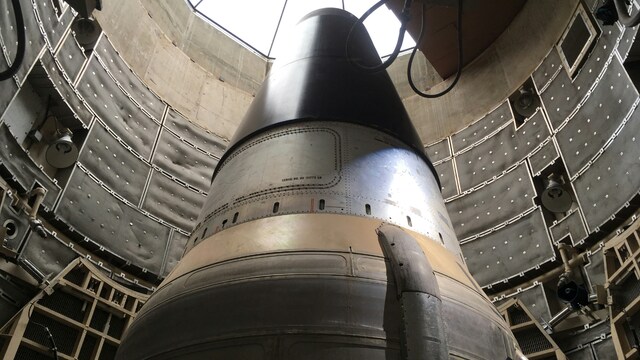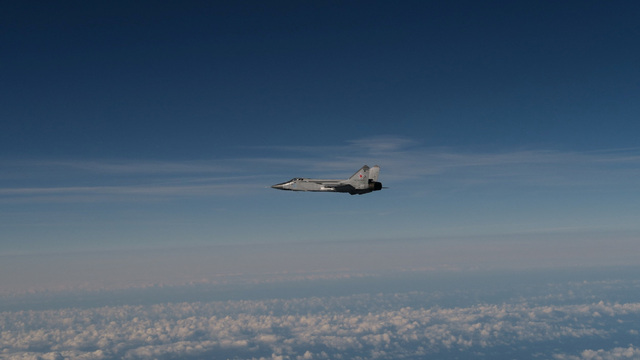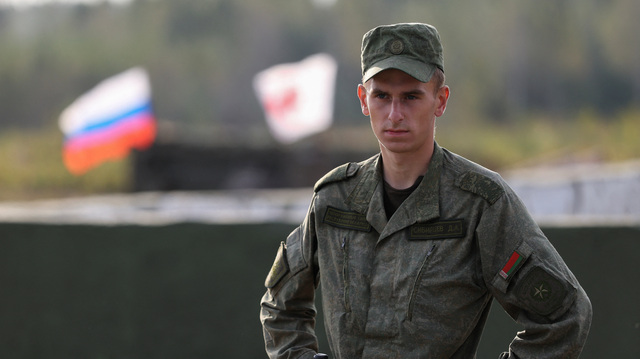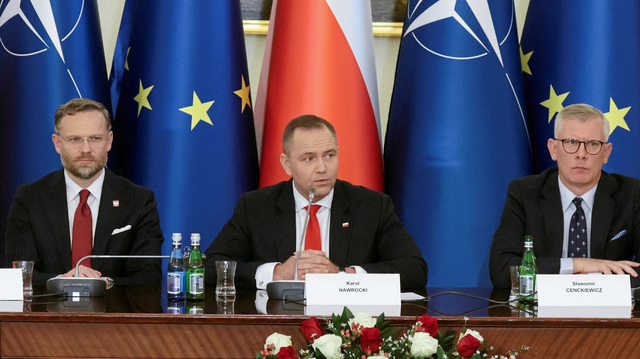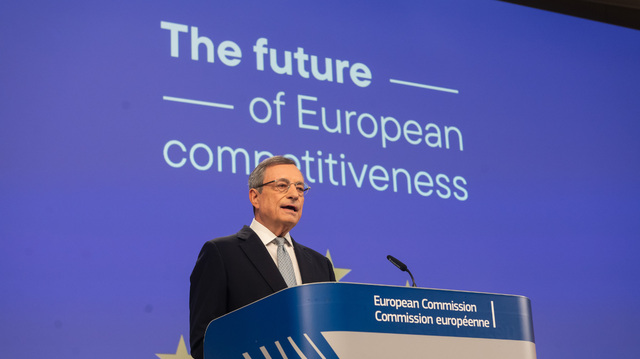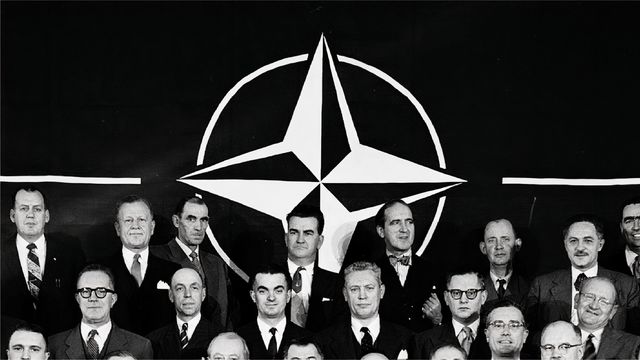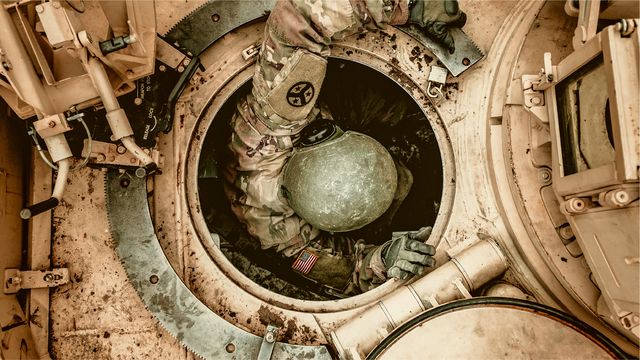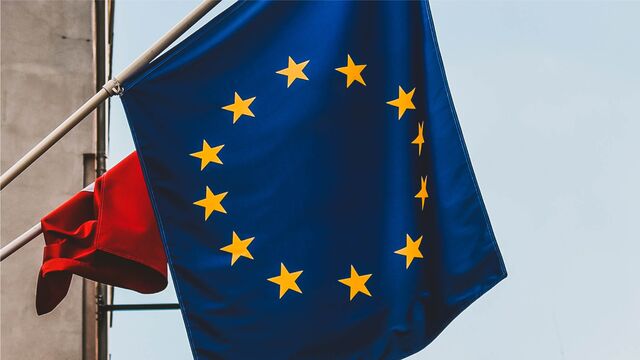European Strategic Autonomy: Distant but Irresistible
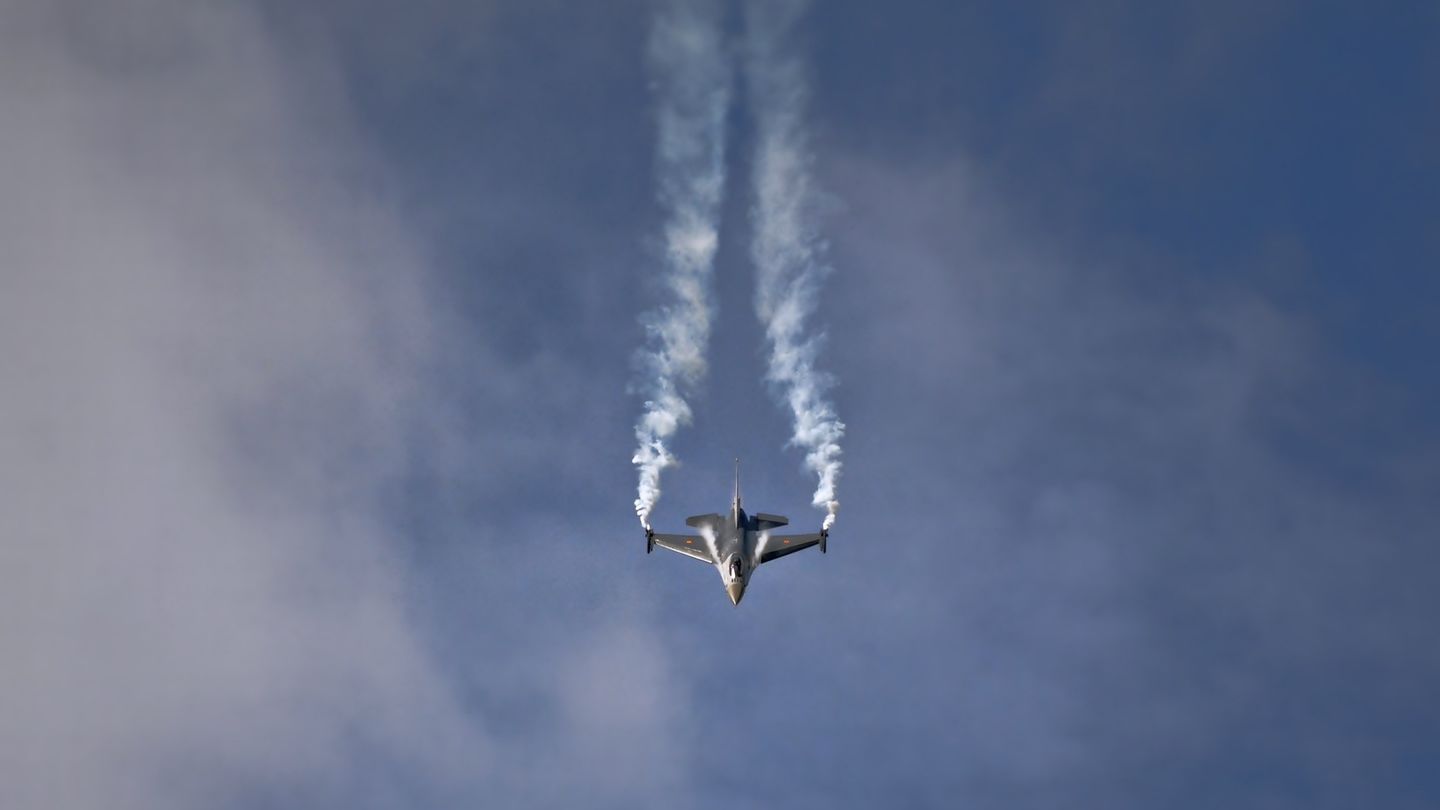
paper
Under pressure from overlapping crises, writes Michal Šimečka in his newest policy paper, the European Union is embracing a more assertive role in security. The election of Donald Trump has added a further sense of urgency and purpose to EU defence cooperation. The pursuit of European strategic autonomy is not just a matter of upgrading capabilities, building institutions, or re-calibrating EU–NATO cooperation. It is also a struggle to re-invent the EU’s identity. The Czech Republic emerged as a supporter of the new dynamic, but Prague should do more to back its rhetorical support with tangible commitments and policy leadership.
Under pressure from overlapping crises, the European Union is embracing a more assertive role in security. The election of Donald Trump has added a further sense of urgency and purpose to EU defence cooperation.
The pursuit of European strategic autonomy is not just a matter of upgrading capabilities, building institutions, or re-calibrating EU–NATO cooperation. It is also a struggle to re-invent the EU’s identity.
The Czech Republic emerged as a supporter of the new dynamic, but Prague should do more to back its rhetorical support with tangible commitments and policy leadership.
Introduction
European defence and security cooperation used to be an obscure topic of conversation among academics and policy professionals. Not anymore. Over the past year, defence and security rose to the top of the EU’s political agenda. The external push is easy to see. In his letter to EU Prime Ministers ahead of the January 2017 European Council, its President Donald Tusk summed up the EU’s geopolitical predicament in unusually blunt and bleak terms: “An increasingly, let us call it, assertive China, Russia’s aggressive policy towards Ukraine and its neighbours, wars, terror and anarchy in the Middle East and in Africa, with radical Islam playing a major role, as well as worrying declarations by the new American administration all make our future highly unpredictable”.1 Amidst cracks in the US security umbrella and talk of the EU’s impotence in defending its own interests, it is easy to miss the silent transformation – however belated and incremental it may be – in the politics of EU defence and security cooperation.
For 2016 was not only the year of Brexit, Donald Trump, or centrifugal currents in Visegrad and elsewhere; it was also a year in which Member States coalesced around a new Global Strategy explicitly calling for European strategic autonomy; when European defence budgets rebounded; when the EU and NATO broke a long-standing deadlock in their mutual cooperation; a realpolitik deal with Turkey on migration became touted as a model of EU strategic diplomacy; EU defence integration turned into an article of conventional wisdom, and the use of the EU common budget for defence-related expenditures ceased to be a taboo; and even the most euro-sceptic of leaders judged it politically expedient to call for an EU Army or even an EU-owned nuclear arsenal.2
Any leap forward is unlikely before the elections in France, the Netherlands and Germany, and before the US’s and the UK’s relations with Europe become a little clearer. Yet the momentum behind a more autonomous EU defence seems irresistible. Not since the wars in Yugoslavia – which haunted the EU and precipitated the birth of Common Security and Defence (CSDP) at the Saint-Malo summit in 1998 – had there been such a broad-based consensus on the imperative and parameters of change. Its elements are, by now, well-rehearsed: they include an incipient EU headquarters for planning and conduct of CSDP missions; synchronization of national planning and budget cycles; a European Defence Fund to spur defence research, pool Member States’ resources and incentivize collaborative capability development, inter alia by exemptions from EU budget rules, with a focus on closing critical shortfalls, such as strategic enablers; building clusters of integration of Member States’ armed forces; and an overhaul of funding mechanisms for CSDP missions and Battle Groups to smoothen force generation and ensure deployability, respectively. These and other measures could be rolled out separately, or as part of a bolder institutional departure, namely the establishment of a Permanent Structured Cooperation (PSC) for a committed core of Member States.
Beyond defence integration, 2016 also portends a wider shift towards more pragmatism and hard-nosed interest-based calculation in EU foreign policy, with priority attached to regional stability and defence against terrorist and hybrid threats emanating from the neighbourhood, or containment of immigration flows through conditional offers of development aid to third countries. Most ambitiously, the EU may come to play an active role in protecting European territory and citizens, in the shape of CSDP missions deployed to assist in maritime border control or ward off potential hybrid campaigns. In all, should these ideas and impulses come to fruition, 2016 may come to be remembered as a turning point in the EU’s evolution into a fully-fledged security and geopolitical actor.
The EU’s security identity and its discontents
To appreciate the significance – indeed, the iconoclasm – of the EU’s nascent turn to hard security and geopolitics, it is worth recalling the intellectual and political foundations of its extant identity as a ‘civilian’ and ‘normative’ power. The European project itself was born out of an explicit rejection of geopolitics in the aftermath of WW2 – a heritage which remains encased in the discourse, practices and institutions of EU external action and security policy. It crystallizes most vividly in the wording of Article 21 of the Lisbon Treaty, whereby “EU actions on the international scene shall be guided by the principles which have inspired its own creation, development and enlargement, and which it seeks to advance in the wider world”. The logic of universalizing the EU’s own success in taming the ‘great power mentality’ – by projecting its template of cooperative security and pooled sovereignty onto the outside world, as both a vanguard and an archetype of a future global order – lay at the heart of the EU’s identity as an actor in security and international affairs. In the early 2000s, it received a further boost by Ian Manners’ influential notion of Europe as a normative power, which recast the EU’s lack of military clout and its sui generis construction as a source of moral strength and political leverage.3 These legacies remain embedded in the design of the CSDP, the European Neighbourhood Policy (ENP) and other policies, as well as specific EU practices of external relations: for example, its trademark ‘comprehensive approach’ to conflicts can be traced back to Europe’s experience of postwar reconciliation; likewise, the EU's penchant for reducing bilateral relations with world powers to trade agreements and sectoral dialogues betrays a characteristic aversion to strategic or security agendas, lest these would imply conflicting interests and zero-sum games.
Hence, today’s drive for a more robust EU security posture is not just a matter of upgrading capabilities, building institutions or re-calibrating the division of labour between the EU and NATO; it is also a struggle to re-invent the EU’s identity. The crises of the past decade have done much to de-legitimize the EU’s self-perception as a normative power: today, the EU stands accused of weakness and naïveté, and of detachment from “the more muscular, ‘modern’ world where most people live”.4 Indeed, implicit in the political initiatives and policy departures of 2016 is the charge that the EU’s normative aspiration of transforming societies and remodelling international relations has become obsolete and dangerous, diverting attention and resources from the fundamental task of protecting Europe from turmoil in its neighbourhood; and that the EU’s principled pacifism begets paralysis in the face of mounting security challenges, and weakness in strategic engagements with Russia, China and other great powers. Such a line of reasoning is espoused by most Member States’ governments, including those of the Visegrad countries, even if few are yet willing to commit substantial resources or relinquish national sovereignty for the sake of redressing what they diagnose as the EU’s strategic deficit.
The European Global Strategy, drafted by HR/VP Federica Mogherini and published in June 2016, is both a catalyst and a product of the abovementioned struggle to define a narrative for EU security; to reconcile the EU’s founding ideals with the constraints and demands of the degraded security environment of 2016. The intent of the EUGS was to tone down the normative profile of EU foreign policy, bringing it closer to Member States’ own preferences, and, indeed, closer to a state-like conception of security policy, with well-identified interests and due emphasis placed on defending the homeland. However, the EUGS also seeks to transcend the schematic dichotomy of norms versus interests by seizing upon the EU’s current ‘existential crisis’ as a legitimizing moment. It calls for a ‘step-change’ in foreign and security policy, but neither as a utopian dream of remaking the international system, nor as a realpolitik pursuit of great power politics – rather, as a matter of the very survival of the European project.
It is in discussing defence and security that the EUGS is at its most detailed and politically potent. Determined to recast the EU’s identity as a weak ‘herbivore’ actor, the EUGS declares unambiguously that ‘in this fragile world, soft power is not enough’ and that ‘Europeans must be able to protect Europe’,5 an ambition that goes far beyond the Petersberg Tasks or other framings of the role of the CSDP. The EUGS invokes the concept of ‘strategic autonomy’, long favoured by France but rarely included in official EU documents, not least because full strategic autonomy – allowing for supranational EU-owned and EU-led armed forces – is impossible without changing or bypassing the Lisbon Treaty. The EUGS thus treads carefully, limiting itself to an observation that “an appropriate level” of “strategy autonomy is important for Europe’s ability to [...] guarantee the security within and beyond its borders”, though the aspiration is qualified by the affirmation of NATO’s role as “the primary framework” for collective defence for “most Members”.6 Significantly though, the EUGS also contains allusions – admittedly rather vague – to the possible role of the CSDP in conventional defence and deterrence tasks, for example, by envisaging that the EU should “act autonomously while also contributing to and undertaking such actions in cooperation with NATO“. The wider implication from the EUGS is that in a changed strategic environment – in which external and internal security are intertwined – the very distinction between conventional defence of Europe and external crisis management is losing relevance.
Three lessons of 2016
The publication of the EUGS, coinciding with the Brexit referendum, was followed by months of frenetic bureaucratic activity and political debates over the future of EU defence unfolding along three distinct channels. The first, at the level of the EEAS, revolved around the EUGS Implementation Plan for Security and Defence, which set an updated Level of Ambition (LoA) for the CSDP and enumerated an extended list of actionable proposals. The second, taking place within the sphere of Member States, was dominated by Germany and France, whose defence ministers’ non-paper in September framed the political agenda – not least by spelling out some of the hitherto controversial proposals, such the OHQ or PSC – thus prompting most Member States to publicly stake out their positions vis-à-vis the Franco-German blueprint. The third process was led by the European Commission and focused on the EU defence market, culminating in the Defence Action Plan of November 2016, which, inter alia, proposed a European Defence Fund and a future European Defence Research Programme from 2020 onwards. All three strands fed into the December 2016 European Council, which, among other elements, endorsed the notion of an incipient OHQ or ‘permanent planning and conduct capability at the strategic level’, and tasked the HR/VP to prepare “options for an inclusive Permanent Structured Cooperation”.
The last six months of intense strategizing offer three takeaways. The first, and rather unsurprising, is that while the EU27 are open to deeper defence cooperation, their overriding priority is to retain full control and ownership of the process. Not even the greatest enthusiasts – such as Italy, which went far ahead of the rest in calling for a shared European Multinational Force – seem willing to cede any ground to European institutions, be it the EEAS, the Commission or the European Defence Agency. For similar reasons, there is unease over the PSC. The mechanism can be triggered by qualified majority voting, thus sidestepping the UK’s opposition. However, even if the PSC is geared towards capability development programmes rather than piecing multinational forces, it can still exert exclusionary effects, creating two-speed security in Europe. The challenge is therefore to set the PSC entry bar high enough for the initiative to make sense, but inclusive enough so that it does not defeat the ultimate purpose of reinforcing political cohesion through defence integration.
The second takeaway is that the key fault-line in discussions on EU defence – between Atlanticists wedded to NATO and fearful of US disengagement, and those who construe European strategic autonomy as a necessary complement or even a healthy counterpoint to the US military presence – is growing obsolete. This was the case even before Donald Trump’s election cast doubts over the US commitment to the Alliance. Almost everyone, from past US administrations to Allies such as Poland or Romania, had long accepted the premise that the strategic interests of NATO and the EU, while overlapping, are not identical, and that the EU – equipped with a unique set of tools not available to NATO – must shoulder more responsibility for managing security in its neighbourhood. Nonetheless, at least three legitimate and interrelated concerns remain: that over resources (i.e. how to ensure that the build-up of EU structures and capabilities does not duplicate or subtract from those of NATO?); the over timing (i.e. what if today’s plans for EU defence hasten the US withdrawal before Europeans can effectively protect themselves, thereby opening up a security vacuum in the short and medium term?); and the over the precise division of labour (i.e. how far should the EU stray into NATO’s domain of collective defence?).
The last question is arguably the most contentious. But it is also the where recent months have provided a glimpse of a constructive – or at least ‘constructively ambiguous’ – way forward. The updated LoA of November 2016 does list ‘protecting the Union and its citizens’ as one of the three core tasks, alongside external conflict management and capacity-building in partner countries. But it cleverly locates ‘protection of Europe’ inside the nexus of internal and external security, a realm that encompasses resilience to hybrid destabilization, terrorism and radicalization, protecting critical infrastructure, disaster response, border management and the fight against human trafficking. It in this context that the solidarity and mutual assistance clauses of the Lisbon Treaty should be understood – and to which they are well-suited. Given that the CSDP does not have a legal mandate to operate inside EU territory, the specifics of how the EU military could engage in these tasks – beyond a maritime operation such as Sophia – are left deliberately fuzzy. Nonetheless, such a framing of ‘protecting Europe’ carves out a meaningful and politically palatable role for the EU as a partner and a contributor to NATO’s core mission of collective defence and deterrence.
The third lesson of 2016 is that Euroscepticism and nationalism need not be an obstacle to defence integration. The positioning of the Visegrad political leaders is a case in point. Not just Bohuslav Sobotka, but also Viktor Orban and Jaroslaw Kaczynski, two of the most outspoken critics of the EU’s infringement on nation-states’ sovereignty, have publicly come out in favour of a supranational EU Army, the hallmark of all Euro-federalist dreams. It is easy – and probably correct – to dismiss their rhetoric as empty and disingenuous: being at best a distant and vague prospect, a European army can be talked up with zero political or material costs. Nonetheless, the growing support of nationalist and Eurosceptic groups for ‘more Europe’ in defence – even as they fight for repatriation of powers in every other domain – is suggestive of an intriguing ideological re-alignment spurred in large part by the 2015 migration crisis and terrorist attacks.
Much of it boils down to the disdain that Euro-sceptics feel for what they see as a weak, decadent and defenceless EU that is mortally threatened by alien cultures and pushed around by great powers. In last year’s survey of Europe’s insurgent parties’ foreign policy attitudes, ECFR concludes that “many of the parties […] have a vision of a militarily strong Europe that invests more in its own security’, and that, “surprisingly, the overwhelming majority of the parties see European solutions as more appropriate than national solutions in dealing with the crisis facing the EU”.7 What it suggest is an ideological compatibility – or even outright affinity – between the nativist discourse and a longing for Europe as a traditional ‘sovereign’ power. It follows that Mr Orban’s vision of the kind of operations future EU defence forces ought to perform – say, military fortification of EU borders – clashes with what the German and Italian governments (or Mr Sobotka, for that matter) may have in mind. But the wider point is that after the migration crisis and last year’s terrorist attacks, EU defence is gaining in electoral attractiveness for a never-wider tent of politicians and national constituencies: in the Czech Republic or Poland, for instance, it is now possible to sell CSDP missions in far-flung places as a way of combating the ‘root-causes’ of illegal migration. While this bodes well for the prospects of EU defence cooperation, it may come at the cost of diluting its normative profile.
Recommendations
Over the past year, the Czech Republic has emerged as an advocate of closer EU defence integration, not just through Mr Sobotka’s public calls for an Army, but also through its contributions to the EUGS and its Implementation Plan, where Prague subscribed to German and French ideas. This placed the Czech position well into the mainstream of European thinking. To make the most of its positioning, the Czech Republic should:
• Buttress its political and rhetorical support for EU defence efforts by tangible progress in collaborative ventures under the EU’s pooling and sharing framework, primarily with Germany and/or Visegrad partners, as well as by a commitment (however symbolic at this stage) to further contributions to CSDP missions, building on the Czech presence in EUTM Mali.
• Actively shape the debate on inclusive parameters of a future Permanent Structured Cooperation, with a view of joining the framework from the outset.
• Leverage its strategic partnerships with Poland and Germany to contribute towards a gradual alignment of views between the core drivers of defence integration, above all Germany and France, and traditional sceptics among the new Member States.
• Provide policy ideas and political leadership on issues bearing on EU–NATO cooperation, especially in the context of synergies and harmonization of both organizations’ capability development planning processes, building on an earlier Czech initiative to reform the NATO–EU Capability Group.
• Resist the temptation to frame the pursuit of the EU’s strategic autonomy and sharper geopolitical edge as an alternative to the EU’s identity as a champion of global norms.
This policy paper is based on the results of the project TB940MZV003 – MP03, European
Global Strategy: Process, Outcome, Implications, which was supported by the Technology
Agency of the Czech Republic.
